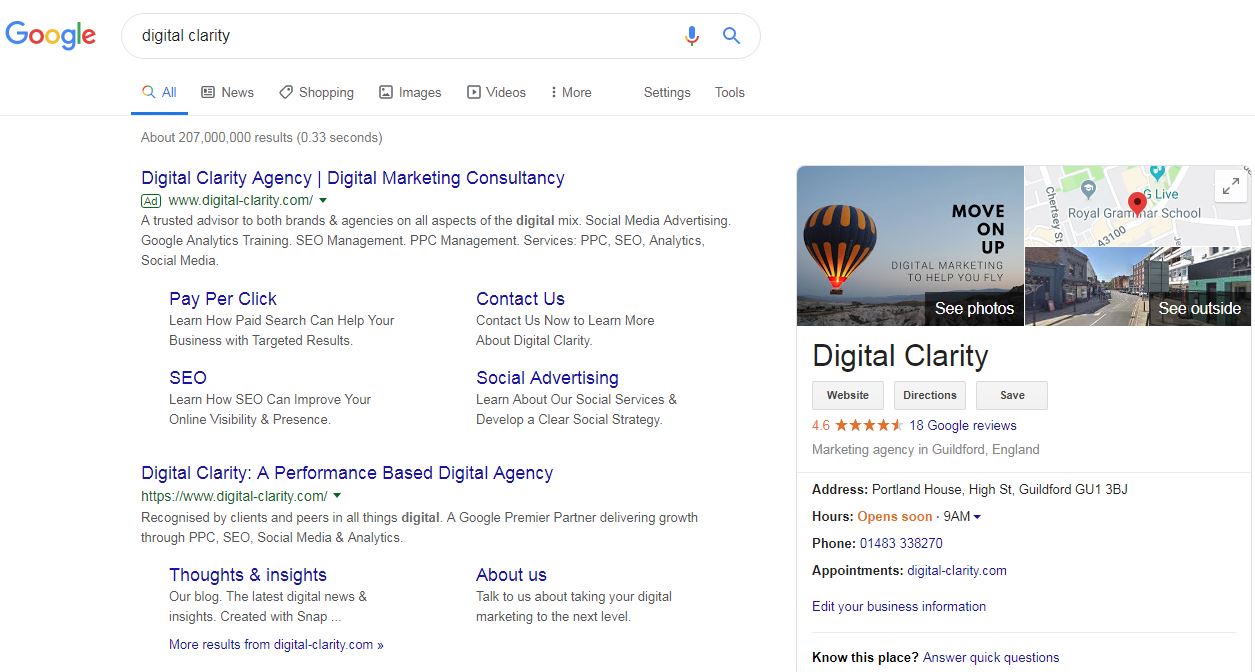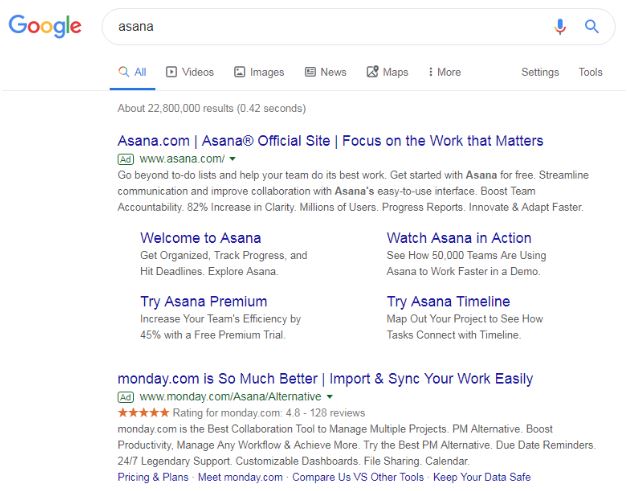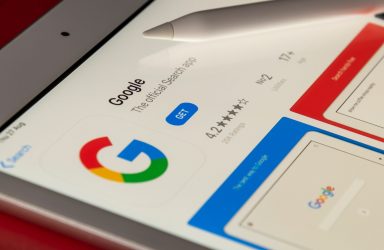Estimated Reading Time [est_time]
Bidding on your own brand terms is somewhat of a controversial topic amongst PPC’ers. Many are certain you absolutely should do it, whilst others believe that if you have a strong organic presence for your brand then there’s no need.
To be clear: when talking about brand terms, I’m talking about the brand name. Nike, Adidas, Digital Clarity, Topshop, etc. These can include variants as well as prefixes and suffixes, such as ‘Digital Clarity marketing’ or ‘Topshop jeans’ – basically any keyword that includes your brand name.
Unfortunately, there’s no right or wrong answer. While there are many factors to consider before bidding on your brand terms, it ultimately depends on your business goals and objectives.
Controversy aside, we’ve looked at five reasons why you should bid on your brand terms.
1. You can say what you want about your brand
Because you have complete control over what will appear (how Google displays it is another matter), you can choose exactly what messaging you want to use to promote your brand. You can test different wording, calls to action, utilise various different extensions, the list goes on.
2. You’ll have a greater presence on SERPs
If you’re dominating the top spot with your brand ad, as well as numerous organic listings below, you’re literally putting your brand right in front of a consumer. Paired with the knowledge panel, you can pretty much dominate the first page of search results.
3. Keep ahead of the competition
Your competitors could be bidding on your brand terms, right under your nose. They may not be able to include your brand name within their ad (depending on trademark and copyright laws) however there’s very little to stop them bidding on the keyword.
A great example I’ve come across a few times is within the project management software industry. Typing in ‘asana’ brings up ads for both Asana and Monday.com, which offer similar services. Monday.com have even gone as far to include Asana within their URL paths – now that is a bit controversial…
4. Understand conversion attribution
It’s often argued that brand keywords tend to drive the majority of conversions, after all if someone is actively looking for your brand, they’re surely more likely to convert. There’s no denying that brand keywords can cloud overall conversion data. However, have you considered looking deeper into the journey users take before they convert? You might find that their first touch was via non-brand terms, but their last click before conversion was via a brand keyword. There any many ways to report on this and you might be surprised by the results. Not looking so cloudy now is it?
5. It’s (most likely) cheaper!
Branded terms tend to be much more cost effective than non brand keywords, due to the fact that they are less competitive – depending on what your brand name is. In the past, we’ve seen clients pay upwards of £35 per click for non brand keywords, with their brand keywords coming in much lower at less than £1 (many costing just a few pence for exact matches of specific brand names). With the possibility of such low CPC’s, why not test it for a short period? It’s more than likely that it won’t break the bank.
Conclusion
As I said at the start, there’s no right or wrong answer when it comes to bidding on your brand keywords. It comes down to what you are trying to achieve, and what your business goals and objectives are. At Digital Clarity, it’s not something that we implement across all clients, but it is something that we encourage if it’s right for the business.
For more information or to discuss how to leverage your branded digital strategy, please contact the team to learn more.









